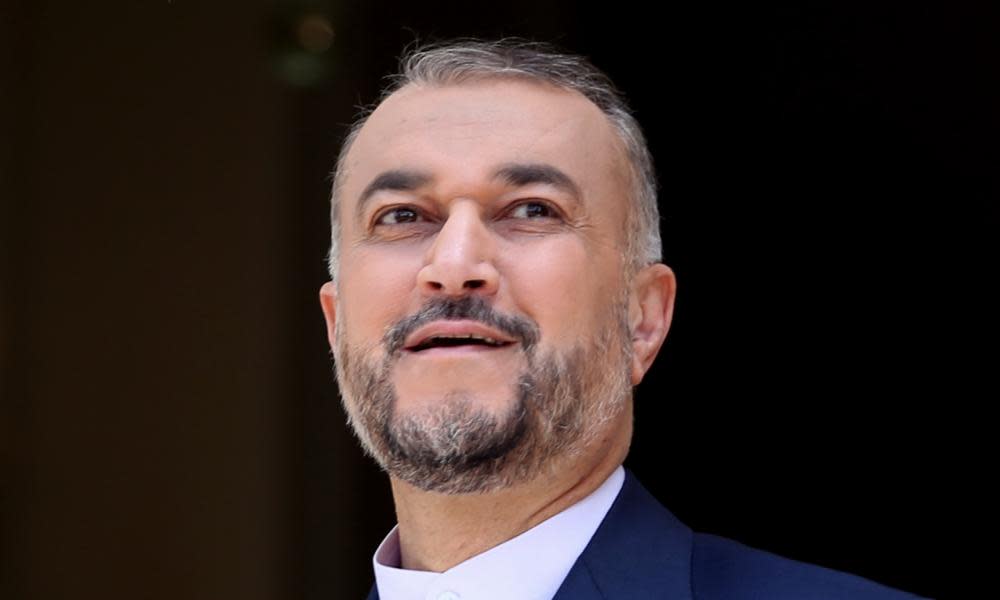Iran and US ready to restart talks on nuclear deal

Josep Borrell, the EU foreign affairs chief, has said talks will restart on the Iran nuclear deal, averting a complete collapse in the agreement which could spark a nuclear arms race across the Middle East.
After a meeting with the Iranian foreign minister, Hossein Amir-Abdollahian, in Tehran, Borrell said he had broken the stalemate which had led to talks on the revival of the nuclear deal being stalled since March. Borrell gave no detail about the exact date of the resumption of talks or the precise format, but said the process had the agreement of Iran and the US. He also met Iran’s national security chief Ali Shamkhani.
Related: Biden to keep Iran’s Revolutionary Guards on terrorist list, Israel claims
Previous talks broke down with most aspects of the US’s return to the nuclear agreement settled. However the US president, Joe Biden, was not willing to accept Iran’s demand that sanctions be lifted on the Islamic revolutionary guard corps (IRGC) by ending its designation as a foreign terrorist organisation.
Iran had recently privately revised that stipulation, but then felt the US had not reciprocated by setting out the future steps the IRGC could take to end its terrorist designation.
At a joint press conference in Tehran, Amir-Abdollahian said: “We are ready to resume the Vienna talks within the next days.”
He expressed hope that the US would “this time” pursue a “realistic and fair approach” and give Iran the full economic benefit of the 2015 nuclear agreement known as the Joint Comprehensive Programme of Action (JCPoA). In 2018 Donald Trump announced he would impose “the highest level of economic sanctions” on Iran and pulled the US out of the agreement.
The Iranian foreign minister said he held “detailed, precise and deep” talks with Borrell on the JCPoA revival negotiations, adding: “We are going to break the stalemate in the Vienna talks and end the tension that has existed in recent days.”
Borrell later said the initial talks will not take place in Vienna because the discussions involve the US, Iran and the EU. He said they would take place in a Gulf country. If they succeed, the deal would be referred to a wider meeting of the JCPoA, including the other signatories of Russia and China, in Vienna.
Pressure had been building for the resumption of talks as the UN nuclear inspectorate had lost almost all effective access to Iran’s nuclear sites. Iran had responded to a censure motion passed earlier this month by the board of the International Atomic Energy Agency by disconnecting some cameras in its facilities, undermining the UN’s “continuity of knowledge” about Iranian nuclear activities.
Many regional observers remain dubious that a deal will be reached, but the Ukraine war has not produced an economic windfall for Iran as Russia has been offering its oil to China at a discount price, squeezing Iran out of key markets. Iran’s oil exports to China had fallen by 34% as of May, according to Hamid Hosseini, president of the Oil and Gas Exporters’ Union in Iran.

 Yahoo Movies
Yahoo Movies 
